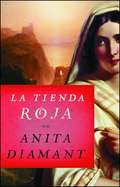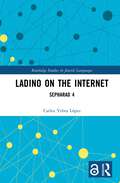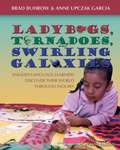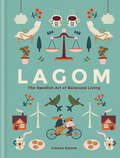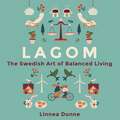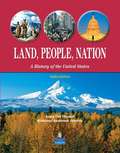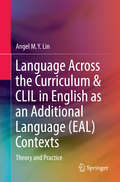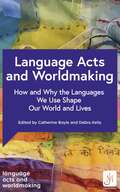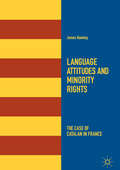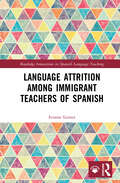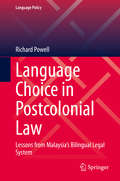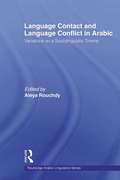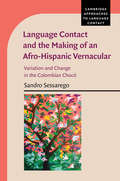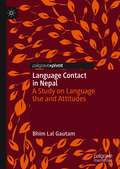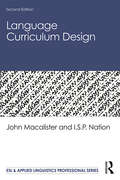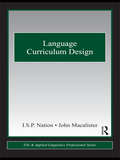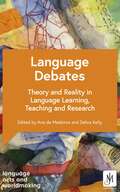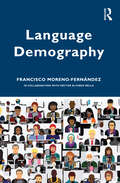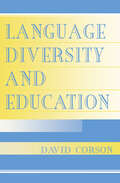- Table View
- List View
La nevada del Cucut
by Blanca BusquetsUna dona que va viure fa cent anys escriu damagat a la llum duna espelma en un lloc perdut de Catalunya. Les seves lletres la lligaran amb fil invisible a una altra dona del segle XXI que tampoc pot viure sense escriure. Tan sols elles dues veuen un poble nevat en un quadre que aparentment només té taques...Lart i les lletres, però també el dolor i sentiments molt intensos, són el que portarà aquestes dues dones a patir com ningú, però també a viure plenament la vida, probablement també com ningú lha viscut.Una història que no podràs deixar de lleguir, uns personatges que estimarás, una novel·la que no podràs oblidar.
La perla: En español (Spanish Language Edition of The Pearl) (Novela/edhasa Ser. #Vol. 18)
by John SteinbeckSteinbeck's classic cautionary tale, now in an accessible new Spanish-language translationOne of Steinbeck's most taught works, The Pearl is the story of the Mexican diver Kino, whose discovery of a magnificent pearl from the Gulf beds means the promise of a better life for his impoverished family. His dream blinds him to the greed and suspicions the pearl arouses in him and his neighbors, and even his loving wife Juana cannot temper his obsession or stem the events leading to tragedy. This classic novella from Nobel Prize-winner John Steinbeck examines the fallacy of the American dream, and illustrates the fall from innocence experienced by people who believe that wealth erases all problems.
La tienda roja
by Anita DiamantProfundamente conmovedora, La tienda roja combina una rica historia con el valor de la ficción moderna: una nueva visión de la sociedad bíblica femenina.Su nombre era Dina y en la Biblia apenas se la menciona para referirse a un violento suceso de venganza que protagonizaron su padre, Jacob, y sus hermanos Simeón y Levi. Única hija de Jacob entre los numerosos varones que este tuvo con Lía, su primera mujer, y con sus otras tres esposas, Zilpa, Raquel y Bilha, todas ellas hijas de Laban. Dina relata su propia historia creando una autentica evocación del mundo femenino en la época del Antiguo Testamento. En aquellos tiempos, las tradiciones, las historias familiares y los conocimientos en general se perpetuaban de generación en generación por medio del linaje materno. Y el traspaso de toda esta sabiduría tenia lugar en la "tienda roja," espacio donde se recluían las mujeres cuando no podían aparecer ante los ojos de los hombres: durante los días del ciclo femenino, después de los partos y en momentos de enfermedad. Allí, Dina explicara las historias de sus "cuatro madres," a partir del día en que Jacob apareció en las tierras de su tío Laban, así como el azaroso traslado de su familia desde las Mesopotamia hasta Canaán, y mas tarde su emigración a Egipto.Pero La tienda roja no es simplemente una reconstrucción del libro del Génesis desde el punto de vista de la mujer, sino una novela histórica minuciosamente investigada que nos introduce en el riquísimo mundo de las tradiciones mas ancestrales. Todo un acopio de normas y conductas imprescindibles para la supervivencia en tierras áridas y desoladas que, además de constituir la base de las religiones judeocristianas, siguen vigentes en algunos rincones del mundo hasta el día de hoy.
Ladino on the Internet: Sepharad 4 (Routledge Studies in Jewish Languages)
by Carlos Yebra LópezLadino on the Internet constitutes the first critical and systematic account written in English on the online revitalisation of Ladino.This book conclusively demonstrates that nowadays the global Ladino-speaking community connects first and foremost online, which calls for a full, comprehensive examination of the web-based development of the Sephardic diaspora (including that of Ladino) as a qualitatively different stage, termed ‘Sepharad 4’ in this monograph.Drawing upon the methodological framework of Revivalistics and including a comparative analysis with similar initiatives apropos Yiddish, this volume analyses case studies including YouTube digital archives, social media platforms, language learning apps, online schools, and Ladino on Netflix, plus on Web 3.0 platforms.This monograph will appeal to scholars and postgraduate students seeking to familiarise themselves with the use of technological tools to further the revitalisation of endangered languages such as Ladino.
Ladybugs, Tornadoes, and Swirling Galaxies: English Language Learners Discover Their World Through Inquiry
by Brad Buhrow Anne Upczak GarciaYou will see how the authors blend comprehension instruction and ELL best practices to explore inquiry as a literacy pathway for English language learners. As teachers and students engage in learning science and social studies content they also discover multiple ways to make meaning. The book is full of photographs of student artwork--including a color insert--that reveals the children's inquiry process, and demonstrates the important role of art as a sign system in ELL literacy and language acquisition. Brad and Anne provide explicit detail on the process they use as they move step-by-step with students from personal narrative through the independent inquiry process. They also discuss use of the Gradual Release Model, authentic assessment, and bilingual identities. Appendices in Spanish and English help to round out this informative and charming resource.
Lagom: The Swedish Art of Balanced Living
by Linnea DunneStep aside Hygge. Lagom is the new Scandi lifestyle trend taking the world by storm. This delightfully illustrated book gives you the lowdown on this transformative approach to life and examines how the lagom ethos has helped boost Sweden to the No.10 ranking in 2017's World Happiness Report. Lagom (pronounced 'lah-gom') has no equivalent in the English language but is loosely translated as 'not too little, not too much, just right'. It is widely believed that the word comes from the Viking term 'laget om', for when a mug of mead was passed around a circle and there was just enough for everyone to get a sip. But while the anecdote may hit the nail on the head, the true etymology of the word points to an old form of the word 'lag', which means 'law'.Far from restrictive, lagom is a liberating concept, praising the idea that anything more than 'just enough' is a waste of time. Crucially it also comes with a selflessness and core belief of responsibility and common good. By living lagom you can: Live a happier and more balanced life Reduce your environmental impact Improve your work-life balance Free your home from clutter Enjoy good food the Swedish way Grow your own and learn to forage Cherish the relationships with those you love
Lagom: The Swedish Art of Balanced Living
by Linnea DunneDiscover the Swedish ethos of balanced living with Lagom.Lagom (pronounced 'lar-gom') has no equivalent in the English language but is loosely translated as 'not too little, not too much, just right'. It is widely believed that the word comes from the Viking term 'laget om', for when a mug of mead was passed around a circle and there was just enough for everyone to get a sip. But while the anecdote may hit the nail on the head, the true etymology of the word points to an old form of the word 'lag', which means 'law'.Far from restrictive, lagom is a liberating concept, praising the idea that anything more that 'just enough' is a waste of time. Crucially it also comes with a selflessness and core belief of responsibility and common good. By living lagom you can live a happier and more balanced life, reduce your environmental impact, improve your work-life balance, free your home from clutter, enjoy good food the Swedish way, grow your own and learn to forage, and cherish the relationships with those you love.Linnea Dunne was born and raised in Sweden, where she started her writing career as a columnist at the local newspaper aged 15. She left for Ireland a few years later and eventually moved to London, where she studied Creative Writing and Political Communications. She now lives in Dublin with her husband and two half-Swedish kids, trying to achieve that lagom balance against all odds. Linnea's work on subjects ranging from motherhood to women's rights and media narratives has been published by (among others) the Irish Times, the Guardian and the Irish Independent, and she also works as Editor of Scan Magazine. The irony of the fact that she escaped her home country, never made it back, and now spends the majority of her day writing about Scandinavian culture, innovation and trends is lost on no one.(P) 2017 Octopus Publishing Group
Land, People, Nation: A History of the United States (3rd Edition)
by Anna Uhl Chamot Kathleen Anderson SteevesLand, People, Nation: A History of the United States helps English language learners and struggling readers develop academic language skills for learning history and geography. The engaging readings and illustrations, maps, charts, and graphs build valuable interpretive skills for students as they master academic content.
Language Across the Curriculum & CLIL in English as an Additional Language (EAL) Contexts
by Angel M. Y. LinThis book will be of interest to a broad readership, regardless of whether they have a background in sociolinguistics, functional linguistics or genre theories. It presents an accessible "meta-language" (i. e. a language for talking about language) that is workable and usable for teachers and researchers from both language and content backgrounds, thus facilitating collaboration across content and language subject panels. Chapters 1 to 3 lay the theoretical foundation of this common meta-language by critically reviewing, systematically presenting and integrating key theoretical resources for teachers and researchers in this field. In turn, Chapters 4 to 7 focus on issues in pedagogy and assessment, and on school-based approaches to LAC and CLIL, drawing on both research studies and the experiences of front-line teachers and school administrators. Chapter 8 provides a critical and reflexive angle on the field by asking difficult questions regarding how LAC and CLIL are often situated in contexts characterized by inequality of access to the linguistic and cultural capitals, where the local languages of the students are usually neglected or viewed unfavourably in relation to the L2 in mainstream society, and where teachers are usually positioned as recipients of knowledge rather than makers of knowledge. In closing, Chapter 9 reviews the state of the art in the field and proposes directions for future inquiry.
Language Acts and Worldmaking: How and Why the Languages We Use Shape Our World and Our Lives
byCollectively authored by the Language Acts and Worldmaking team, this defining volume offers reflective narratives on research, theory and practice over the course of the flagship project of the same name, funded by the Arts and Humanities Research Council's Open World Research Initiative. It returns to the project's key principles - that our words make worlds and we are agents in worldmaking - analyses the practices and outcomes of collaborative working, and looks to the future by offering concrete ideas for how the work they have done can now continue to do its work in the world.Focusing on the key research strands, this volume looks at the role of the language teacher as a mediator between languages and cultures, worldmaking in modern languages, translation and the imagination, languages and hospitality, digital mediations, and how words change and make worlds. Critically, it analyses the impact on communities of living in multilingual cities, and the ways in which learning a first language, and then a second, and so on, plays a crucial role in our ability to understand our culture in relation to others and to appreciate the ways in which they are intertwined.Specific aims are to: · propose new ways of bridging the gaps between those who teach and research languages and those who learn and use them in everyday contexts from the professional to the personal · put research into the hands of wider audiences · share a philosophy, policy and practice of language teaching and learning which turns research into action · provide the research, experience and data to enable informed debates on current issues and attitudes in language learning, teaching and research · share knowledge across and within all levels and experiences of language learning and teaching · showcase exciting new work that derives from different types of community activity and is of practical relevance to its audiences · disseminate new research in languages that engages with diverse communities of language practitioners.
Language Acts and Worldmaking: How and Why the Languages We Use Shape Our World and Our Lives
byCollectively authored by the Language Acts and Worldmaking team, this defining volume offers reflective narratives on research, theory and practice over the course of the flagship project of the same name, funded by the Arts and Humanities Research Council's Open World Research Initiative. It returns to the project's key principles - that our words make worlds and we are agents in worldmaking - analyses the practices and outcomes of collaborative working, and looks to the future by offering concrete ideas for how the work they have done can now continue to do its work in the world.Focusing on the key research strands, this volume looks at the role of the language teacher as a mediator between languages and cultures, worldmaking in modern languages, translation and the imagination, languages and hospitality, digital mediations, and how words change and make worlds. Critically, it analyses the impact on communities of living in multilingual cities, and the ways in which learning a first language, and then a second, and so on, plays a crucial role in our ability to understand our culture in relation to others and to appreciate the ways in which they are intertwined.Specific aims are to: · propose new ways of bridging the gaps between those who teach and research languages and those who learn and use them in everyday contexts from the professional to the personal · put research into the hands of wider audiences · share a philosophy, policy and practice of language teaching and learning which turns research into action · provide the research, experience and data to enable informed debates on current issues and attitudes in language learning, teaching and research · share knowledge across and within all levels and experiences of language learning and teaching · showcase exciting new work that derives from different types of community activity and is of practical relevance to its audiences · disseminate new research in languages that engages with diverse communities of language practitioners.
Language Attitudes and Minority Rights: The Case Of Catalan In France
by James HawkeyThis book presents a detailed sociolinguistic study of the traditionally Catalan-speaking areas of Southern France, and sheds new light on language attitudes, phonetic variation, language ideologies and minority language rights. The region’s complex dual identity, both Catalan and French, both peripheral and strategic, is shown to be reflected in the book’s attitudinal findings which in turn act as reliable predictors of phonetic variation. The author’s careful discursive analysis paints a clear picture of the linguistic ideological landscape: in which French dominates as the language of status and prestige. This innovative work, employing cutting-edge mixed methods, provides an in-depth account of an under-examined language situation, and draws on this research to propose a number of policy recommendations to protect minority rights for speakers of Catalan in the region. Combining language attitudes, sociophonetics, discourse studies, and language policy, this will provide an invaluable reference for scholars of French and Catalan studies and minority languages around the world.
Language Attrition among Immigrant Teachers of Spanish (Routledge Innovations in Spanish Language Teaching)
by Ivonne LernerLanguage Attrition among Immigrant Teachers of Spanish is the first book devoted entirely to Spanish language attrition in all language areas and specifically among language professionals.Based on original research awarded the ASELE-Routledge prize in 2022, this volume presents an interdisciplinary and pioneering study on native language attrition among Spanish L1 immigrants in Israel, though its insights can be easily applied in any immigration setting. It focuses on the challenges faced by immigrant foreign-language instructors teaching their L1 (first language). Integrating both quantitative and qualitative data, the study explores Spanish language attrition in a multilingual and multicultural context like Israel, offering innovative insights and suggestions for future research. Language Attrition among Immigrant Teachers of Spanish also contributes to the native/non-native language teacher debate from the unique perspective of attrition, proposing a workshop for teachers alongside its research findings.This volume is an essential resource for researchers and postgraduate students of applied linguistics with a specific interest in language attrition or sociolinguistics. It will also be of interest to foreign language teachers and teacher trainers.
Language Choice in Postcolonial Law: Lessons from Malaysia’s Bilingual Legal System (Language Policy #22)
by Richard PowellThis book discusses multilingual postcolonial common law, focusing on Malaysia’s efforts to shift the language of law from English to Malay, and weighing the pros and cons of planned language shift as a solution to language-based disadvantage before the law in jurisdictions where the majority of citizens lack proficiency in the traditional legal medium. Through analysis of legislation and policy documents, interviews with lawyers, law students and law lecturers, and observations of court proceedings and law lectures, the book reflects on what is entailed in changing the language of the law. It reviews the implications of societal bilingualism for postcolonial justice systems, and raises an important question for language planners to consider: if the language of the law is changed, what else about the law changes?
Language Conflict in Educational Settings: International Perspectives (Routledge Research in Language Education)
by Adolfo Elizaincín Yliana V. RodríguezLanguage Conflict in Educational Settings: International Perspectives delves into the intriguing intersection of contact linguistics and education, a topic that has been relatively unexplored until now.With contributions from scholars across the globe, the book ventures into the realms of conflict linguistics in educational scenarios. Language contact, often fraught with internal and external conflicts, impacts education significantly. Drawing on scholarship representative of different locations, backgrounds, and disciplinary angles, the authors present studies of pairs and triads of different language families from across the Americas, Africa, Asia, and Europe, ultimately demonstrating how language contact leads to conflict, and how the latter eventually affects education processes and outcomes. Presenting a diverse set of theoretical perspectives and methodologies, it asks to what extent these impacts are detrimental to educational outcomes, and more specifically, how language conflict can impact education in the form of policy, teaching, and learning. As such, it provides essential insights for educators, policymakers, and professionals in the fields of education, linguistics, and cultural studies, offering valuable case studies in the under-researched field of language conflict. It ultimately contributes to the enhancement of education in language contact contexts and fosters a deeper understanding of this critical intersection.This book is an invaluable resource for researchers, scholars, and teacher-educators, offering insights to help understand such an intricate phenomenon, as well as those working across language education, linguistics, and the sociology of language more broadly.
Language Contact and Language Conflict in Arabic (Routledge Arabic Linguistics Series)
by Aleya RouchdyThis book contains 17 studies by leading international scholars working on a wide range of topics in Arabic socio-linguistics, divided into four parts. The studies in Part 1 address questions of national language planning in a diglossic situation, with a particular focus on North Africa. Part 2 explores the relationship of identity and language choice in different Arabic-speaking communities living both within and outside the Arab World. Part 3 examines language choice in such diverse contexts as popular preaching, humour and Arab women's writing. Part 4 contains 5 papers in which variation, code-switching and generational language shift in the Arabic-language diaspora in Europe and the USA are the focus. The collection as a whole provides wide-ranging introduction to key areas of current research, which will be of interest to the general sociolinguist as well as the Arabic language specialist.
Language Contact and the Making of an Afro-Hispanic Vernacular: Variation and Change in the Colombian Chocó (Cambridge Approaches to Language Contact)
by Sandro SessaregoExploring creole studies from a linguistic, historical, and socio-cultural perspective, this study advances our knowledge of the subject by using a cohesive approach to provide new theoretical insights into language shift, language acquisition and language change. It compares the legal system regulating black slavery in Chocó, Colombia with the systems implemented by other European colonial powers in the Americas, to address questions such as what do Chocó Spanish linguistic features say about the nature of Afro-Hispanic vernaculars? What were the sociohistorical conditions in which Chocó Spanish formed? Was slavery in Chocó much different from slavery in other European colonies? Whilst primarily focused on Afro-Hispanic language varieties, Sessarego's findings and methodology can be easily applied and tested to other contact languages and settings, and used to address current debates on the origin of other black communities in the Americas and the languages they speak.
Language Contact in Nepal: A Study on Language Use and Attitudes
by Bhim Lal GautamThis book examines language contact and shift in Nepal, a multilingual context where language attitudes and policies often reflect the complex socio-cultural and socio-political relationship between minority, majority and endangered languages and peoples. Presenting the results of a 15-year study and making use of both quantitative and qualitative data, the author presents evidence relating to speakers' opinions and perceptions of mother tongues including English, Hindi, Nepali, Sherpa, Dotyali, Jumli and Tharu. This book explores an under-studied part of the world, and the findings will be relevant to scholars working in other multilingual contexts in fields including language policy and planning, language contact and change, and language attitudes and ideologies.
Language Contact in the Early Colonial Pacific
by Emanuel J. DrechselThis volume presents a historical-sociolinguistic description and analysis of Maritime Polynesian Pidgin. It offers linguistic and sociohistorical substantiation for a regional Eastern Polynesian-based pidgin, and challenges conventional Eurocentric assumptions about early colonial contact in the eastern Pacific by arguing that Maritime Polynesian Pidgin preceded the introduction of Pidgin English by as much as a century. Emanuel J. Drechsel not only opens up new methodological avenues for historical-sociolinguistic research in Oceania by a combination of philology and ethnohistory, but also gives greater recognition to Pacific Islanders in early contact between cultures. Students and researchers working on language contact, language typology, historical linguistics and sociolinguistics will want to read this book. It redefines our understanding of how Europeans and Americans interacted with Pacific Islanders in eastern Polynesia during early encounters and offers an alternative model of language contact.
Language Curriculum Design (ESL & Applied Linguistics Professional Series)
by John Macalister I.S.P. NationNow in its second edition, Language Curriculum Design describes the steps involved in the curriculum design process, elaborates and justifies these steps, and provides opportunities for practicing and applying them. Crystal-clear and comprehensive yet concise, the steps are laid out at a general level so that they can be applied in a wide range of particular circumstances. Updated throughout with cutting-edge research and theory, the second edition contains new examples on curriculum design and development and expanded attention on environment analysis, needs analysis, and program evaluation. The process comes to life through plentiful examples of actual applications from the authors’ experience and from published research. Each chapter also includes tasks that encourage readers to relate the steps to their own experience, and case studies and suggestions for further reading. Combining sound research/theory with state-of-the-art practice, Language Curriculum Design is widely applicable for ESL/EFL language education courses around the world.
Language Curriculum Design: Concepts And Approaches In Action Around The World (ESL & Applied Linguistics Professional Series)
by John Macalister I.S.P NationCrystal-clear and comprehensive yet concise, this text describes the steps involved in the curriculum design process, elaborates and justifies these steps, and provides opportunities for practicing and applying them. The description of the steps is done at a general level so that they can be applied in a wide range of particular circumstances. The process comes to life through plentiful examples of actual applications of the steps. Each chapter includes: examples from the authors' experience and from published research tasks that encourage readers to relate the steps to their own experience case studies and suggestions for further reading that put readers in touch with others' experience Curriculum, or course, design is largely a 'how-to-do-it' activity that involves the integration of knowledge from many of the areas in the field of Applied Linguistics, such as language acquisition research, teaching methodology, assessment, language description, and materials production. Combining sound research/theory with state-of-the-art practice, Language Curriculum Design is widely applicable for ESL/EFL language education courses around the world.
Language Debates: Theory and Reality in Language Learning, Teaching and Research (Language Acts and Worldmaking #1)
by VariousThis book captures an urgent moment for language teaching, learning and research. At its core are a series of debates concerning gender stereotyping, the place of linguistics in modern languages, language activism, multilingualism and modern languages and digital humanities. Taken together, these debates explore the work that languages, and that those who learn and speak them, do in the world as well as the way we think 'through' and 'in' a language and are shaped by it. Language Debates acknowledges the history of language teaching and the current realities of language teaching and learning. It is bold in suggesting ways forward for reform and for policy, setting languages and language learning at the heart of a consciously transformative set of goals. This book is therefore essential reading for academics, language teachers, policy makers, students, activists and those passionate about progressing language learning and teaching. The editors and contributors make up a multilingual and multicultural team who work across languages, cultures and borders with a globally-informed approach to their work. Uniquely, the debates in this volume are based on events with participants in the Language Acts and Worldmaking Debates Series and/or workshops within the wider research project and take into account the ensuing discussions there. Each debate is accompanied by an interview which serves as a model on how to continue the conversation beyond the printed pages of the book. You can also discover ways to join the debate through links on the Language Acts and Worldmaking series website (www.jmlanguages.com/languageacts) which includes recorded debates, additional materials and more information about the series. Like all the volumes in the Language Acts and Worldmaking series, the overall aim is two-fold: to challenge widely-held views about language learning as a neutral instrument of globalisation and to innovate and transform language research, teaching and learning, together with Modern Languages as an academic discipline, by foregrounding its unique form of cognition and critical engagement. Specific aims are to:· propose new ways of bridging the gaps between those who teach and research languages and those who learn and use them in everyday contexts from the professional to the personal· put research into the hands of wider audiences · share a philosophy, policy and practice of language teaching and learning which turns research into action· provide the research, experience and data to enable informed debates on current issues and attitudes in language learning, teaching and research· share knowledge across and within all levels and experiences of language learning and teaching· showcase exciting new work that derives from different types of community activity and is of practical relevance to its audiences · disseminate new research in languages that engages with diverse communities of language practitioners.
Language Debates: Theory and Reality in Language Learning, Teaching and Research (Language Acts and Worldmaking #1)
by VariousThis book captures an urgent moment for language teaching, learning and research. At its core are a series of debates concerning gender stereotyping, the place of linguistics in modern languages, language activism, multilingualism and modern languages and digital humanities. Taken together, these debates explore the work that languages, and that those who learn and speak them, do in the world as well as the way we think 'through' and 'in' a language and are shaped by it. Language Debates acknowledges the history of language teaching and the current realities of language teaching and learning. It is bold in suggesting ways forward for reform and for policy, setting languages and language learning at the heart of a consciously transformative set of goals. This book is therefore essential reading for academics, language teachers, policy makers, students, activists and those passionate about progressing language learning and teaching. The editors and contributors make up a multilingual and multicultural team who work across languages, cultures and borders with a globally-informed approach to their work. Uniquely, the debates in this volume are based on events with participants in the Language Acts and Worldmaking Debates Series and/or workshops within the wider research project and take into account the ensuing discussions there. Each debate is accompanied by an interview which serves as a model on how to continue the conversation beyond the printed pages of the book. You can also discover ways to join the debate through links on the Language Acts and Worldmaking series website (www.jmlanguages.com/languageacts) which includes recorded debates, additional materials and more information about the series. Like all the volumes in the Language Acts and Worldmaking series, the overall aim is two-fold: to challenge widely-held views about language learning as a neutral instrument of globalisation and to innovate and transform language research, teaching and learning, together with Modern Languages as an academic discipline, by foregrounding its unique form of cognition and critical engagement. Specific aims are to:· propose new ways of bridging the gaps between those who teach and research languages and those who learn and use them in everyday contexts from the professional to the personal· put research into the hands of wider audiences · share a philosophy, policy and practice of language teaching and learning which turns research into action· provide the research, experience and data to enable informed debates on current issues and attitudes in language learning, teaching and research· share knowledge across and within all levels and experiences of language learning and teaching· showcase exciting new work that derives from different types of community activity and is of practical relevance to its audiences · disseminate new research in languages that engages with diverse communities of language practitioners.
Language Demography
by Francisco Moreno-FernándezLanguage Demography presents, exemplifies, and develops linguistic concepts involved in demography and the demographic concepts involved in sociolinguistics. The first introductory guide of its kind, it is presented in a way that is accessible to non-specialists. The book includes numerous examples of the sources and types of data used in this field, as well as the various factors affecting language demography. Taking a global perspective supported by examples, it gives explanations of how demolinguistic analyses are performed and their main applications in relation to minority and majority languages. Language Demography will be of interest to students from a range of disciplinary backgrounds, from linguistics and modern languages to sociology, anthropology, and human geography.
Language Diversity and Education
by David CorsonThis introductory text for students of linguistics, language, and education provides background and up-to-date information and resources that beginning researchers need for studying language diversity and education. Three framing chapters offer an update on the philosophy of social research, revealing how important language is for all the processes of learning in which humans engage, whether it is learning about the world through education, or learning about the nature of social life through research in the human sciences. These chapters also review the links between language, power, and social justice, and look at dynamic changes occurring in "language diversity and education" research. Four central chapters give state-of-the-art, comprehensive coverage to the chief areas of language diversity that affect the practice of education: standard and non-standard varieties; different cultural discourse norms; bilingual and ESL education; and gendered discourse norms. This book is intended for graduate students of applied linguistics, sociolinguistics, psycholinguistics, the social psychology of language, anthropological linguistics, and other related disciplines; and graduate students of education, including in-service teachers taking advanced professional development courses. Special features enhance its usefulness as a text for courses in these areas: * A clear, jargon free writing style invites careful reading. * All ideas are well within the range that graduate students in the language disciplines or in education can relate to their work, but theoretical ideas are kept to a necessary minimum and linked with practical examples in every case. * Extensive references guide readers to the book's up-to-date, international, and cross-cultural bibliography. * "Discussion Starter" questions at the end of each chapter highlight key points and stimulate informed, reflective discussion.


